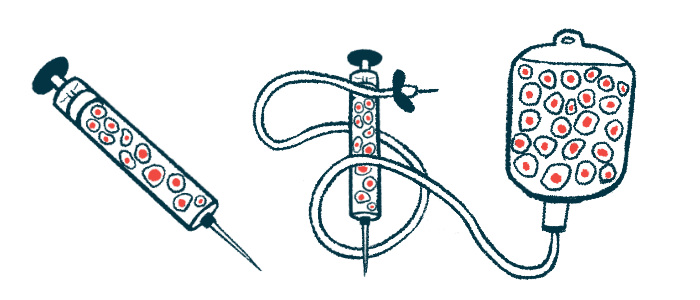Dosing Completed in Parkinson’s-related Bradykinesia Stem Cell Trial
Phase 1 trial is testing umbilical cord-derived mesenchymal stem cells in patients
Written by |

IMAC Holdings has completed the dosing of a third and last group of patients who are taking part in a Phase 1 clinical trial that’s testing an investigational stem cell therapy for bradykinesia due to Parkinson’s disease, the company announced.
Five patients received a one-time intravenous (into-the-vein) infusion of a low dose of the therapy last year. A second group of five patients received a higher (medium) dose earlier this year.
The company waited to see if the two lower doses appeared to be safe enough before a third group of five more patients were given a high dose of the therapy.
All 15 patients are being followed over one year to check for any side effects at three of IMAC’s clinical centers in Chesterfield, Missouri; Paducah, Kentucky; and Brentwood, Tennessee.
Bradykinesia is an early motor symptom of Parkinson’s marked by slowness or difficulty in movement. Over time, it may lead to freezing of gait, which occurs when a person feels as though their feet are “glued” to the ground, making it difficult to take a step forward. It also may lead to a shuffling walk with very small steps, a flat facial expression, and a limited ability to perform everyday tasks.
While it is not known what exactly causes bradykinesia to occur, inflammation may play a role.
Mesenchymal stem cells are adult stem cells — a type of cell that can give rise to almost any cell in the boy — present in multiple tissues in the body, including the umbilical cord, bone marrow, and fat. These cells have anti-inflammatory properties and may help treat the condition by modulating the immune system and easing inflammation.
In this clinical trial (NCT04385056), researchers are testing the safety and tolerability of umbilical cord-derived mesenchymal stem cells in patients aged 55 or older who’ve had bradykinesia for at least three months. Its primary goal is to measure the number of side effects and serious side effects for the duration of the study.
The therapy involves a procedure called an allogeneic stem cell transplant, during which the patients received mesenchymal stem cells from a healthy donor via an intravenous infusion to replace their diseased or damaged cells.



